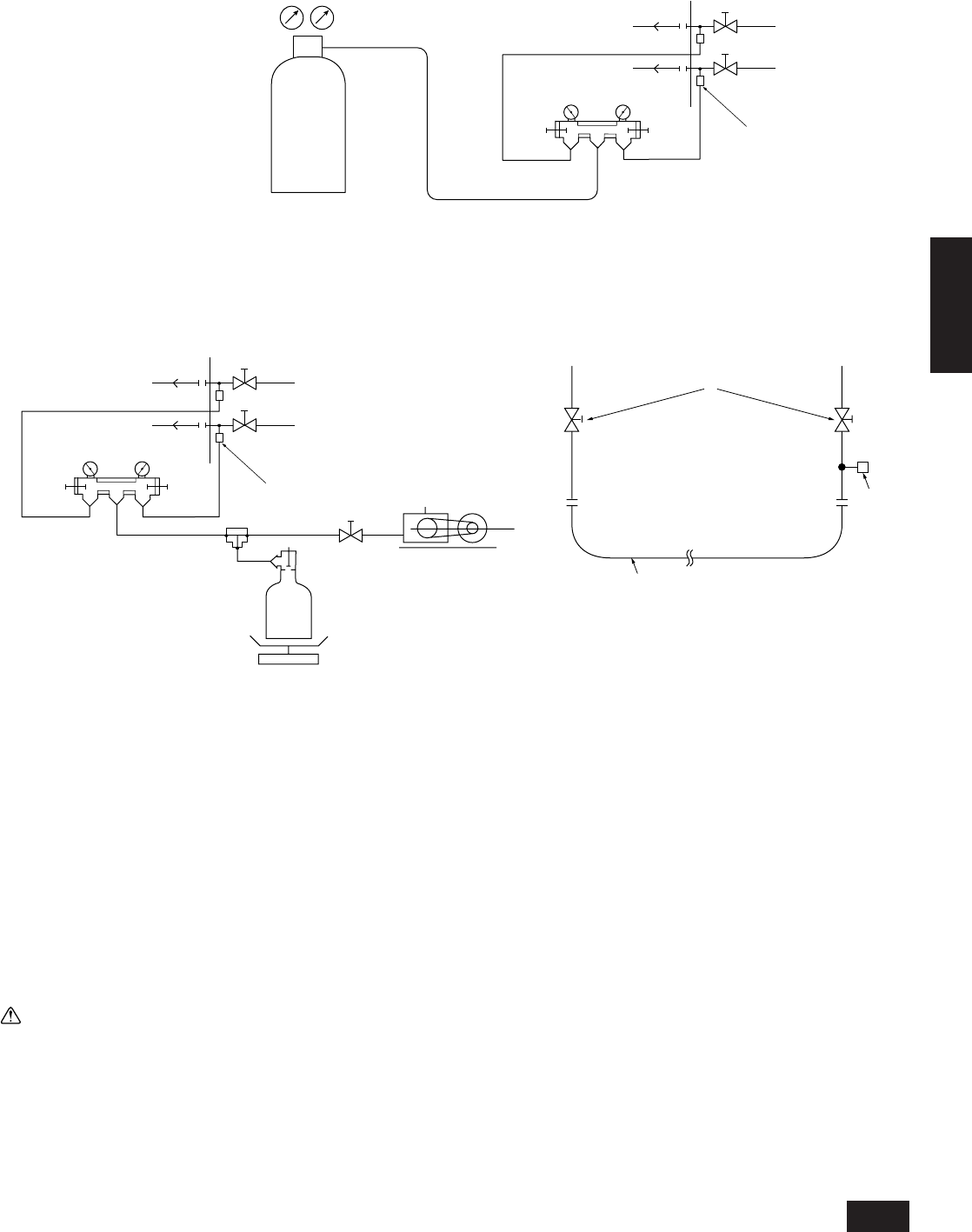
21
ENGLISH
B
A
K
J
L
H
M
C
D
E
F
G
I
LO HI
D
C
C
B
E
F
G
H
I
J
A
LO
HI
10.7. Airtight test and evacuation
1 Airtight test
Airtight test should be made by pressurizing nitrogen gas to 3.0 MPa. For the test method, refer to the following figure. (Make a test with the ball valve
closed. Be also sure to pressurize both liquid pipe and gas pipe.)
The test result can be judged good if the pressure has not bee reduced after leaving for about one day after completion of nitrogen gas pressuriza-
tion.
A Nitrogen gas
B To indoor unit
C System analyzer
D Lo knob
E Hi knob
F Ball valve
G Liquid pipe
H Gas pipe
I Outdoor unit
J Service port
2 Evacuation
Evacuation should be made from the service port provided on the outdoor unit’s ball valve to the vacuum pump commonly used for both liquid pipe
and gas pipe. (Make evacuation from both liquid pipe and gas pipe with the ball valve closed.)
Also evacuate the oil balance pipe that connects the variable capacity and constant capacity units with the oil balance ball valves of both units shut.
Evacuate from the service port of the variable capacity unit ball valve with a vacuum pump.
* Never perform air purging using refrigerant.
A System analyzer
B Lo Knob
C Hi Knob
D Ball valve
E Liquid pipe
F Gas pipe
G Service port
H Three-way joint
I Valve
P
N
D
O
G
J Valve
K Freon 22 cylinder
L Scale
Use a graviometer. (One that can measure down to 0.1 kg.)
If you are unable to prepare such a high-precision gravimeter,
you may use a charge cylinder.
M Vacuum pump
N Constant capacity unit side
O Oil balance pipe
P Variable capacity unit side
Note:
Always add an appropriate amount of refrigerant. (For the refrigerant additional charge, see pages
13
to
14
.) Too much or too little refrigerant
will cause trouble.
Note that it is not possible to determine if a correct amount is being used with the accumulator level (AL).
Warning:
When installing and moving the air conditioner to another site, do not charge the it with a refrigerant different from the refrigerant (R22)
specified on the unit.
- If a different refrigerant or air is mixed with the original refrigerant, the refrigerant cycle may malfunction and the unit may be damaged.


















